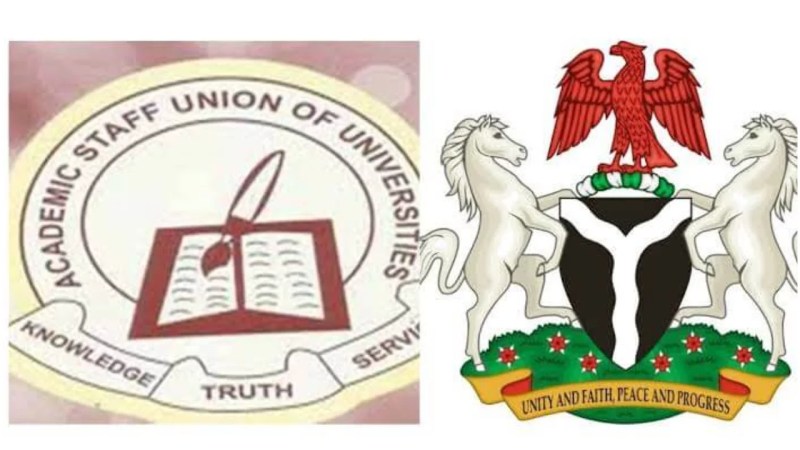ASUU Strike Halts Lectures, Disrupts Exams Across Nigerian Universities

Story: written daniel october 14,2025
Academic activities were completely paralysed in public universities across Nigeria on Monday as members of the Academic Staff Union of Universities (ASUU) began a two-week warning strike. The industrial action followed the expiration of the union’s ultimatum to the Federal Government over unresolved issues affecting lecturers’ welfare and university funding.
The latest face-off came after failed negotiations between ASUU and the Federal Government despite assurances from the Minister of State for Education, Dr. Tunji Alausa, who had earlier stated that discussions were in the final stages. According to him, the Tinubu administration had made progress by releasing ₦50 billion for Earned Academic Allowances and budgeting ₦150 billion in the 2025 fiscal plan for the revitalisation of public universities.
However, ASUU President, Prof. Chris Piwuna, said the government presented a new document during their last meeting that was “entirely different from what was discussed,” especially regarding lecturers’ conditions of service.
He listed the union’s major demands, including the conclusion of the renegotiated 2009 ASUU-FGN Agreement (based on the Nimi Briggs Committee draft), payment of withheld three-and-half months’ salaries from the 2022 strike, settlement of unpaid wages for staff on sabbatical and part-time appointments, and release of outstanding third-party deductions such as pension and cooperative funds.
ASUU also called for the full revitalisation funding of public universities and payment of arrears of the 25–35 percent salary award owed for 12 months. The union warned that any member who violates the ongoing strike directive would face disciplinary action.
Across the country, universities such as the University of Benin, University of Nigeria Nsukka, University of Jos, Nasarawa State University, and Federal University Dutse witnessed total shutdowns. Many institutions in Benue, Jigawa, and Plateau states also reported empty lecture halls and disrupted examinations.
At Nasarawa State University, Keffi, ASUU members reportedly went round examination halls ordering students to vacate as part of the enforcement of the strike.
A 200-level student of Moses Adasu University, Joseph Adoyi, expressed frustration over the disruption.
“This strike has really affected me. I was hoping to move to 300 level soon, but now everything is on hold. I just pray it ends after the two weeks,” he lamented.
Similarly, Mary Ajegba, a final-year student of Federal University Dutse, said repeated strikes have delayed her graduation and youth service.
“If not for these strikes, I’d have been a corps member by now. They always strike when new governments come in. It’s frustrating,” she said.
Meanwhile, ASUU President Prof. Piwuna confirmed that the union remains open to dialogue.
“I received calls from both Alhaji Yayale Ahmed, chairman of the government negotiation team, and the Minister of State for Labour. ASUU is ready to resume discussions and resolve this issue once and for all,” he said during an interview on Channels Television.
In response, the Federal Government has ordered all Vice-Chancellors to enforce the ‘No Work, No Pay’ policy for lecturers participating in the strike. A circular dated October 13, 2025, and signed by Minister of Education Dr. Tunji Alausa, directed universities to halt payment of salaries to striking staff until work resumes.
The ongoing dispute once again highlights the deep-seated challenges facing Nigeria’s higher education sector—funding shortfalls, delayed reforms, and recurring breakdowns in trust between the government and university lecturers.






